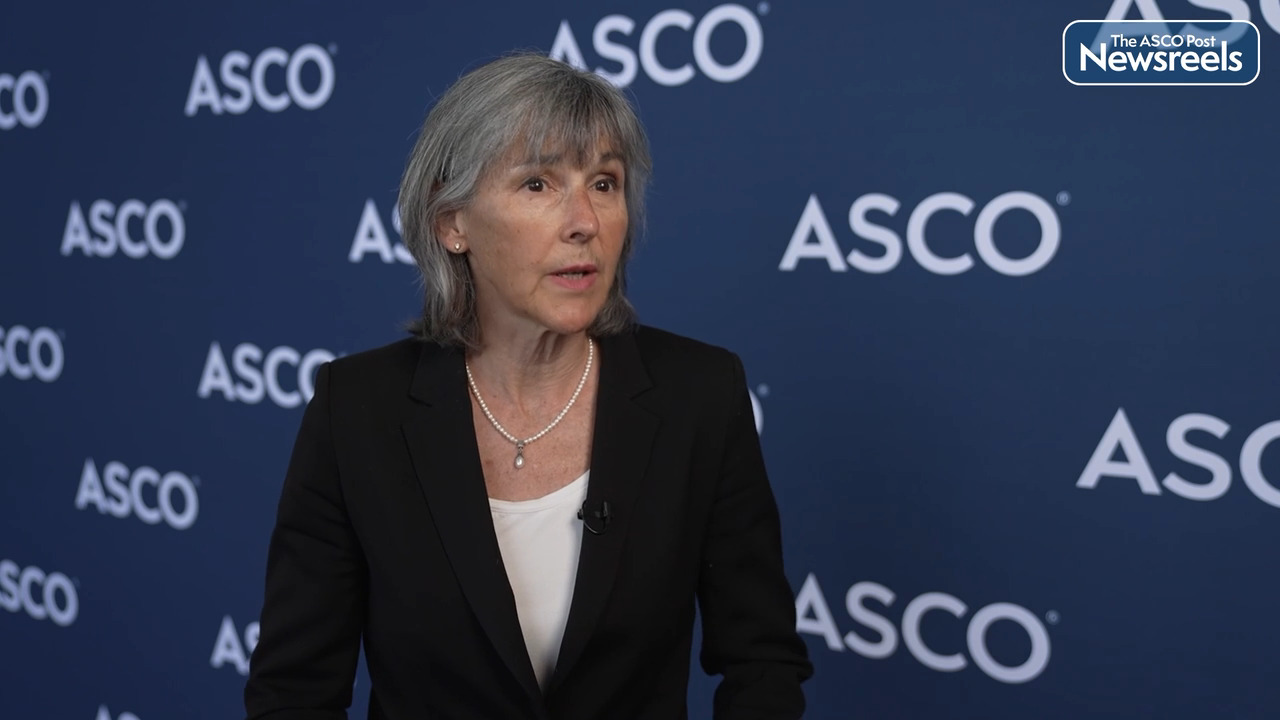Carmen E. Guerra, MD, MSCE, on Diversity, Equity, and Inclusion in Clinical Trials: Expert Commentary
2023 ASCO Annual Meeting
Carmen E. Guerra, MD, MSCE, of the University of Pennsylvania Abramson Cancer Center, discusses three key abstracts presented at ASCO: strategies to increase accrual of underrepresented populations in Alliance NCTN trials, how patient-clinician education can strengthen partnerships and improve diversity in breast and lung cancer trials, and mediators of racial and ethnic inequities in clinical trial participation among U.S. patients with cancer from 2011 to 2022 (Abstracts 6509, 6510, 6511).
The ASCO Post Staff
Jason J. Luke, MD, of the University of Pittsburgh Medical Center Hillman Cancer Center, discusses adjuvant pembrolizumab, which, in previous results, improved distant metastasis– and recurrence-free survival in patients with resected stage IIB or IIC melanoma vs placebo. After a median follow-up of 39.4 months, adjuvant pembrolizumab continued to show a benefit over placebo, with no new safety signals (Abstract LBA9505).
The ASCO Post Staff
Narjust Florez, MD, of Dana-Farber Cancer Institute, and Ferdinandos Skoulidis, MD, PhD, of The University of Texas MD Anderson Cancer Center, discuss results of a biomarker subgroup analysis, showing that sotorasib demonstrated consistent clinical benefit vs docetaxel in all molecularly defined subgroups of patients with pretreated KRAS G12C–mutated advanced non–small cell lung cancer (NSCLC). Although no predictive biomarkers were confirmed, novel hypothesis-generating signals were observed (Abstract 9008).
The ASCO Post Staff
Marie Plante, MD, of Canada’s Université Laval and the CHUQ Hotel Dieu de Québec, discusses phase III results from a study that compared radical hysterectomy and pelvic node dissection vs simple hysterectomy and pelvic node dissection in patients with low-risk early-stage cervical cancer. The pelvic recurrence rate at 3 years in the women who underwent simple hysterectomy is not inferior to those who had radical hysterectomy. In addition, fewer surgical complications and better quality of life were observed with simple hysterectomy (LBA5511).
The ASCO Post Staff
Arlene O. Siefker-Radtke, MD, of The University of Texas MD Anderson Cancer Center, discusses the combination of erdafitinib and cetrelimab, which demonstrated clinically meaningful activity and was well tolerated in cisplatin-ineligible patients with metastatic urothelial carcinoma and fibroblast growth factor receptor alterations (Abstract 4504).
The ASCO Post Staff
Bobbie J. Rimel, MD, of Cedars-Sinai Medical Center, and Mansoor R. Mirza, MD, of Denmark’s Rigshospitalet and Copenhagen University Hospital, discuss new findings on dostarlimab-gxly plus carboplatin/paclitaxel, which improved progression-free survival while maintaining health-related quality of life, further supporting its use as a standard of care in primary advanced or recurrent endometrial cancer (Abstract 5504).





